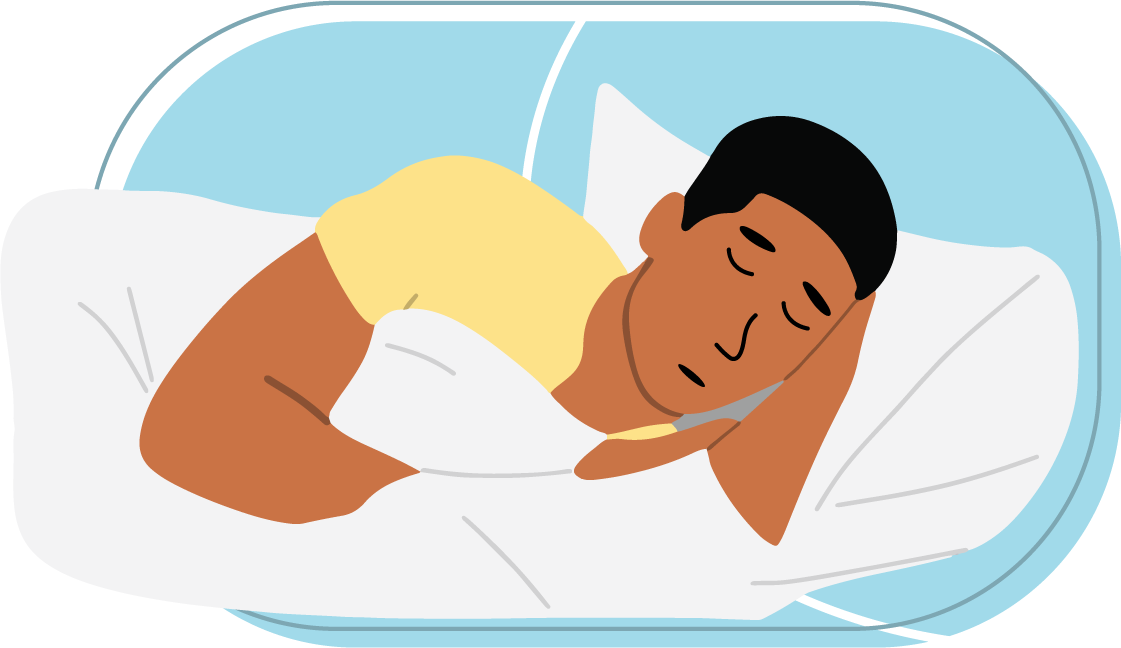The Importance of Sleep

We often sacrifice sleep to meet work deadlines, binge-watch our favorite shows, or scroll through social media. But skimping on sleep does more than just leave you feeling groggy—it can have serious consequences for your physical health, mental well-being, and overall quality of life. In this blog, we’ll explore why sleep is so crucial, the stages of sleep, common sleep disorders, and tips for improving your sleep hygiene.
Why Sleep Matters
Sleep isn’t just a passive state of rest—it’s a vital biological process that helps your body and brain recover. Here’s why sleep is non-negotiable for good health:
Boosts Brain Function – Sleep enhances memory, learning, and problem-solving skills.
Supports Immune Health – Lack of sleep weakens your immune system, making you more susceptible to illnesses.
Regulates Mood – Chronic sleep deprivation is linked to anxiety, depression, and irritability.
Maintains Heart Health – Poor sleep increases the risk of high blood pressure, heart disease, and stroke.
Aids Weight Management – Sleep affects hunger hormones, and insufficient sleep can lead to weight gain.
The Stages of Sleep
Sleep occurs in cycles, each lasting about 90 minutes and consisting of four stages:
NREM Stage 1 (Light Sleep) – The transition from wakefulness to sleep.
NREM Stage 2 (Deeper Relaxation) – Body temperature drops, and heart rate slows.
NREM Stage 3 (Deep Sleep) – Critical for physical recovery and immune function.
REM Sleep (Dream Stage) – Brain activity increases, supporting memory and emotional regulation.
A full night’s sleep (7-9 hours for adults) ensures multiple cycles, allowing the body to repair and the mind to process information.
Common Sleep Disorders
Millions of people struggle with sleep disorders that disrupt their rest, including:
Insomnia – Difficulty falling or staying asleep.
Sleep Apnea – Breathing interruptions during sleep.
Restless Legs Syndrome (RLS) – Uncomfortable sensations in the legs, leading to movement.
Narcolepsy – Excessive daytime sleepiness and sudden sleep attacks.
If you suspect you have a sleep disorder, consult a healthcare professional for diagnosis and treatment.
Tips for Better Sleep
Improving sleep hygiene can make a huge difference in your rest quality. Try these strategies:
✅ Stick to a Schedule – Go to bed and wake up at the same time every day (even on weekends).
✅ Create a Relaxing Bedtime Routine – Read, meditate, or take a warm bath before sleep.
✅ Limit Screen Time – Avoid phones, TVs, and laptops at least an hour before bed.
✅ Optimize Your Sleep Environment – Keep your bedroom cool, dark, and quiet.
✅ Watch Your Diet – Avoid caffeine, alcohol, and heavy meals close to bedtime.
✅ Exercise Regularly – Physical activity promotes deeper sleep, but avoid intense workouts too close to bedtime.
Final Thoughts
Sleep is not a luxury—it’s a necessity. Prioritizing quality rest can improve your mood, energy, productivity, and long-term health. If you’ve been neglecting sleep, start tonight by making small changes to your routine. Your body and mind will thank you!
How many hours of sleep do you usually get? Share your thoughts and tips in the comments below!
- Māksla
- Mūzika
- Dzērieni
- Filmas
- Sports
- Ēdiens
- Spēles
- Dārzkopība
- Veselība
- Mājas
- Literatūra
- IT / tehnika
- Cits
- Ballītes
- Reliģija
- Iepirkšanās
- Sports
- Teātris
- Labsajūta

